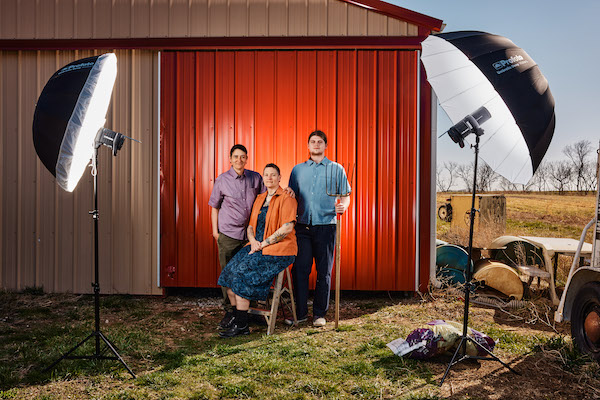
Celebratory LGBTQ+ Picture Books About to Come Out
November 29, 2023
Gay Women of Rehoboth Hosts New ‘Women’s Arts Project’—A Vibrant Celebration Offering Music, Games, and Queer Community
December 7, 2023There is no shortage of threats to the lives and liberty of LGBTQ+ individuals in America. But as a new-age bigoted movement has emerged, so, too, have efforts to advocate for queer people.
Enter: a new Hulu documentary; We Live Here. Dropping December 6, the film highlights the precarious state of queer existence, via stories of queer couples in the Midwest. The couples include a transgender woman and her wife, in Iowa; a gay Black couple in Nebraska; a lesbian couple who are farmers in Kansas; a gay teacher who created queer community in a small Ohio town; and a transgender couple in Minnesota. Among others in the film is Minnesota state legislator Heather Keeler, who discusses her experience as an Indigenous queer lawmaker.
The featured stories center visibility in conservative localities—hence the title—and the notion that people are willing to fight through persecution for the sake of staying in the homes they feel deeply tied to.
While those primary themes are beautifully clear, I wish filmmakers Melinda Maerker and David Clayton Miller had expanded the film beyond its short 53-minute run time to dive deeper into other challenges and questions that emerge in the stories—e.g., the tension between queerness and religion, how queer people can be friends with Trump supporters, and the impact of gender transitions on individuals’ spouses and children.
However, Maerker and Miller intentionally cast the spotlight on people rather than issues. “We didn’t want to be preachy,” Maerker said in a recent Zoom call. “[Instead], by telling good stories with complex people, the hope is that people relate—regardless of whether they’re LGBTQ+ or not—and they end up rooting for these people, as [just] people.”
Ultimately, the people are one of the documentary’s strongest elements, as the participants were stirringly vulnerable and raw.
The film also boasts beautiful editing, cinematography, music, and, most importantly, a diverse range of identities and experiences—while avoiding tokenism. Of course, the spectrum of queer identities and experiences can’t be embodied by just a few people. Still, no two couples or individuals in the film were greatly alike in appearance or personal challenges—although finding any interviewees was difficult. “A lot of people…really feared participation,” Maerker explained. “They feared recrimination in their communities, in their jobs… so the families we did find [are] very courageous.”
Though the filmmakers also face a safety risk, what seems more prominent in their mind ahead of the film’s release is how important it is at present to advocate for the queer community, as they are doing with the documentary. “We’re in a very [perilous] time,” said Miller, referencing the record number of anti-queer bills introduced in 2023 and that the new House Speaker, Mike Johnson, is staunchly anti-queer. “[But queer] families have rights and should be treated with decency!”
With that in mind, Miller and Maerker plan to make subsequent documentaries. They plan to either focus on the issues raised in We Live Here or retake the family-centric approach but feature another location, like Florida. The filmmakers started with the Midwest because of its connection to a critical part of the anti-queer movement’s branding: family values. “The Midwest is considered America’s heartland, and often the heartland of ‘family values,’” said Maerker. “But that term has been co-opted— [it] now means something that excludes people.”
Maerker said they wanted to show that, contrary to conservative rhetoric, queer families in the Midwest generally share the same ‘family values’ as anyone else in the Heartland. As one of the documentary participants put it: “We’re just people living in a community… there’s nothing different about who we are.”
We Live Here might not make Speaker Johnson see that, but the film has the potential to change at least some folks’ perspectives. And in the battle for queer liberation, any such win is welcomed.





